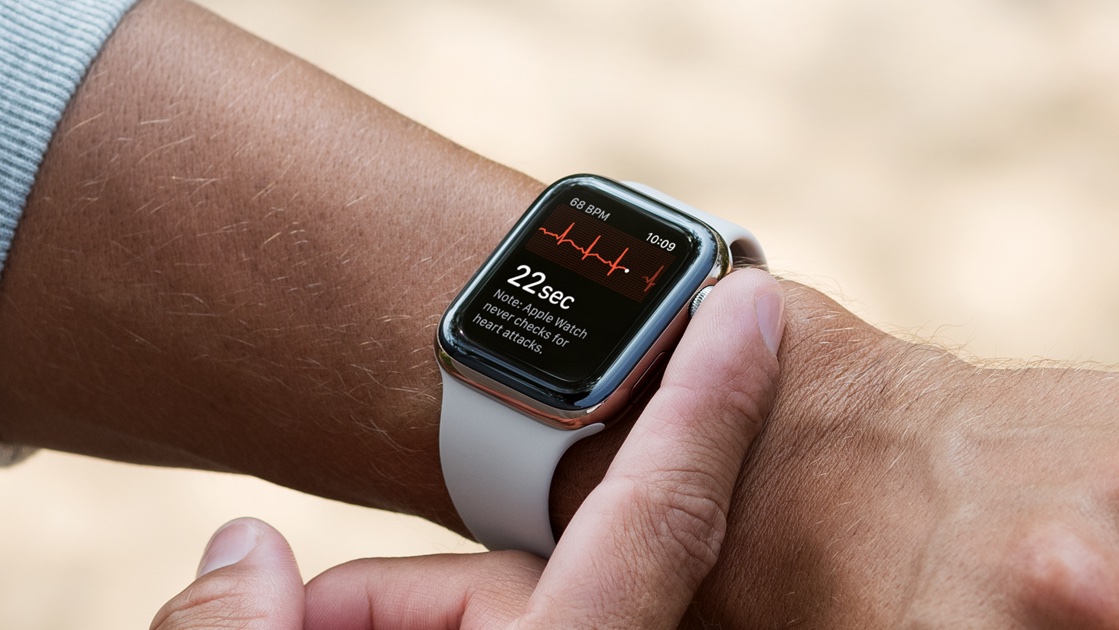
Researchers at the Mayo Clinic have created an artificial intelligence algorithm that is able to use single-lead ECGs taken by the Apple Watch to find patients who have a weak heart pump, according to research data that was shared this week at the Heart Rhythm Society conference.

A weak heart pump, or left ventricular dysfunction, is an issue that affects two to three percent of people around the world, and up to nine percent of people over age 60. Like atrial fibrillation, another heart issue the Apple Watch can detect, a weak heart pump can have no symptoms. It can also be accompanied by symptoms that include racing heart beats or shortness of breath.
Paul Friedman, chair of the Department of Cardiovascular Medicine at the Mayo Clinic in Rochester, Minnesota, said that it is "absolutely remarkable" that AI is able to use a consumer watch ECG to detect the condition, as it is normally something that requires an echocardiogram, CT scan, or MRI to identify.
The ECG feature on the Apple Watch is a single-lead ECG, and it requires users to place a finger on the Apple Watch digital crown for 30 seconds. Results are uploaded to the Apple Health app and can be shared with medical professionals. The ECGs are designed to help detect atrial fibrillation, but ECG functionality and other Apple Watch features are also being studied in the detection of other conditions.
A standard ECG uses 12 electrode leads that are placed on a person's chest, arms, and legs to monitor the heart's electrical signals. To use the single-lead ECG results from the Apple Watch, researchers modified an existing 12-lead algorithm that is known to be able to detect a weak heart muscle.
The study included 125,610 ECGs collected over a period of six months from 46 states and 11 countries. Each person submitted many ECGs, and the cleanest readings were used for the algorithm. Several hundred of the participants had clinical testing to measure pump strength, and that data was used to determine whether the Apple Watch could detect an issue.
Researchers plan to launch global prospective studies to do further testing in more diverse populations to demonstrate the benefit of the single-lead ECG feature in the Apple Watch.Approximately 420 patients had a watch ECG recorded within 30 days of a clinically ordered echocardiogram, or ultrasound of the heart, a standard test to measure pump strength. We took advantage of those data to see whether we could identify a weak heart pump with AI analysis of the watch ECG. While our data are early, the test had an area under the curve of 0.88, meaning it is as good as or slightly better than a medical treadmill test. AI analysis of the watch ECG is a powerful test to identify a weak heart pump.
"This is what the transformation of medicine looks like: inexpensively diagnosing serious disease from your sofa," said Friedman.
Article Link: Researchers Using AI and Apple Watch ECGs to Detect Weak Heart Pump

